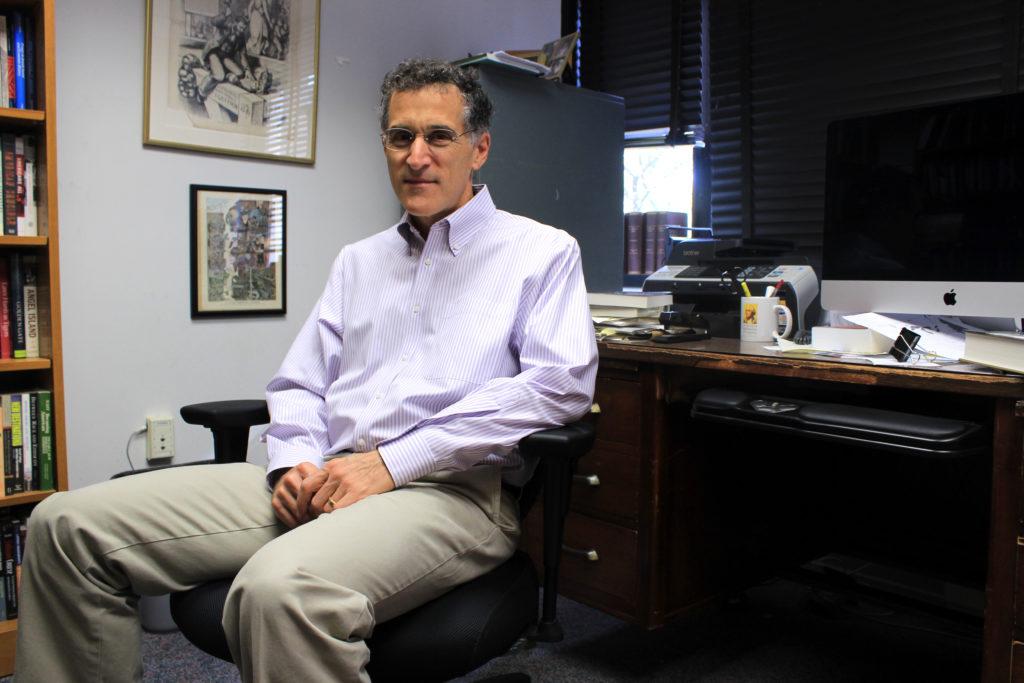Five years after faculty created a group to represent their interests, members said they have facilitated conversations on issues including employee benefits and GW’s institutional culture.
More than 100 faculty members banded together in 2014 to create the Faculty Association, a forum for full-time professors to issue policy recommendations to administrators. Members of the association said that since the organization launched, it has served as an informal labor union as it pushed for increased employee benefits and a reallocation of the University’s resources.
Ivy Ken, the association’s president and an associate professor of sociology, said that in the last half-decade, the group has become the “go-to” for faculty to share their concerns about issues – like a lack of transparency by administrators – through open forum meetings.
The association has published several letters and petitions to address issues on campus, including a petition opposing President Donald Trump’s first Muslim ban, a letter to officials supporting graduate student efforts to unionize and a letter to Reuben Brigety, the dean of the Elliott School of International Affairs, to endorse a decision requiring Elliott School speaker panels of three or more people to have at least one speaker of a different gender.
Ken said the group’s members are “increasingly alarmed” about administrative efforts to improve GW’s institutional culture. The steering committee of the association published a Facebook post last October criticizing University President Thomas LeBlanc’s decision to commission a culture survey from the Disney Institute to summarize GW’s culture and look for ways to improve it.
The Disney Institute survey was part of LeBlanc’s institutional cultural initiative, one of five strategic initiatives announced last year. Members of the Faculty Association expressed concerns about the survey’s “generic” questions and $300,000 price tag.
“We have repeatedly told the president that what the faculty at GW want is a well-run, mission-driven university where the president, administration and Board of Trustees demonstrate unambiguous respect for what we do as faculty, employees and students, across the board,” she said in an email. “This is not the current state of affairs at GW.”
Faculty launched the association five years ago to create a counterweight to the Faculty Senate, which members of the association said had grown too “deferential” to administrators.
Ken said officials wasted money by sponsoring a technology conference in Miami this semester when they could have used the money to support faculty and student research. She said the University could also take steps in the “right direction” by doubling pay for part-time faculty.
“GWUFA is begging the president to stop wasting hundreds of thousands of students’ tuition dollars at fancy Miami tech conferences and insulting culture surveys, and instead refocus on supporting the creative knowledge projects that the scholars at this University are so well-positioned to carry out,” Ken said.
University spokeswoman Maralee Csellar said feedback from faculty, staff and students helps shape LeBlanc’s five strategic initiatives.
“While there may be differences of opinion about priorities and approach, constructive dialogue about how to move the university forward is not only welcome but also essential to achieving our shared aspirations,” Csellar said in an email.
Andrew Zimmerman, a member of the association’s steering committee and a professor of history and international affairs, said he and Ken met with LeBlanc in January to share their concerns surrounding the culture initiative. He declined to say what the conversations entailed, how LeBlanc responded and whether there will be future meetings with administrators.
Zimmerman said the mission of the group is to grant faculty the opportunity to share what they believe are the main problems facing the University and offer potential solutions through open discussions at meetings.
He said the group’s members meet once a semester and elect a steering committee of 14 professors to govern the organization. The steering committee, which meets each month, elects the association’s president, vice president, secretary and treasurer.
“We feel a responsibility to our students and our successors, the young faculty who are coming in now, to not just leave the University as we found it but to leave the University better than we found it,” Zimmerman said.
Benjamin Hopkins, an associate professor of history and international affairs and a member of the association, said the association is the “closest thing” full-time faculty members have to a union because of a Supreme Court case from 1980 denying full-time faculty the right to collective bargaining.
Hopkins said he was part of both the Faculty Senate and the association in the 2014-15 academic year and said the two groups worked on similar issues, but the association maintains more independence from the University.
“Both bodies are very concerned, apart from the specifics of things like benefits, with the general move towards corporatizing the university, which seems to be the order of the day of the administration,” Hopkins said in an email. “I am quite sure both bodies, and the faculty more generally, find the current Disneyfication under the president both obnoxious and ominous.”
Tyler Anbinder, a professor of history and a member of the association, said he has presented multiple reports on employee benefits to the Faculty Senate since May 2018. He pointed to recent administrative decisions, including the announcement that officials will hire a chief people officer to help evaluate employee benefits, as evidence of the association’s success in changing the conversation on benefits.
“We started that conversation and, if we had not raised that, we might not be getting the University to address that,” Anbinder said.





